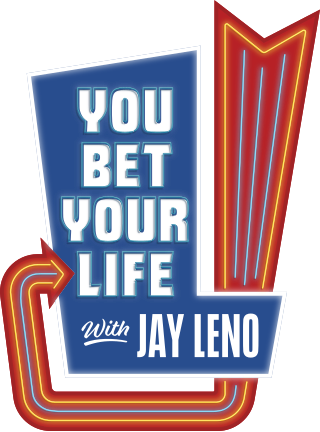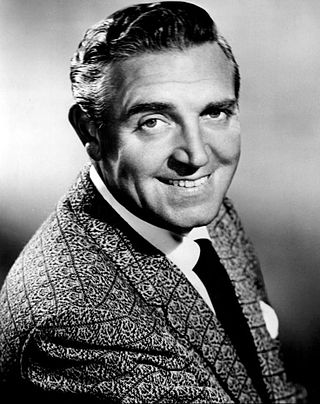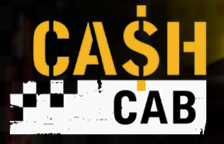
Match Game is an American television panel game show that premiered on NBC in 1962 and has been revived several times over the course of the last six decades. The game features contestants trying to match answers given by celebrity panelists to fill-in-the-blank questions. Beginning with the CBS run of the 1970s, the questions are often formed as humorous double entendres.

Family Feud is an American television game show created by Mark Goodson. Two families compete on each episode to name the most popular answers to survey questions in order to win cash and prizes.
The year 1958 in television involved some significant events. Below is a list of television-related events during 1958.

The 1950s quiz show scandals were a series of scandals involving the producers and contestants of several popular American television quiz shows. These shows' producers secretly gave assistance to certain contestants in order to prearrange the shows' outcomes while still attempting to deceive the public into believing that these shows were objective and fair competitions. Producers fixed the shows sometimes with the free consent of contestants and out of various motives: improving ratings, greed, and the lack of regulations prohibiting such conspiracy in game show productions.

The $64,000 Question was an American game show broadcast in primetime on CBS-TV from 1955 to 1958, which became embroiled in the 1950s quiz show scandals. Contestants answered general knowledge questions, earning money which doubled as the questions became more difficult. The final question had a top prize of $64,000, hence the "$64,000 Question" in the show's title.

Beat the Clock is an American television game show that involves people trying to complete challenges to win prizes while faced with a time limit. The show was a creation of Mark Goodson-Bill Todman Productions.

Password is an American television game show in which two teams, each composed of a celebrity player and a contestant, attempt to convey mystery words to each other using only single-word clues, in order to win cash prizes.

Truth or Consequences is an American game show originally hosted on NBC radio by Ralph Edwards (1940–57) and later on television by Edwards (1950–54), Jack Bailey (1954–56), Bob Barker (1956–75), Steve Dunne (1957–58), Bob Hilton (1977–78) and Larry Anderson (1987–88). The television show ran on CBS, NBC and also in syndication. The premise of the show was to mix the original quiz element of game shows with wacky stunts.

You Bet Your Life is an American comedy quiz series that has aired on both radio and television. The original version was hosted by Groucho Marx of the Marx Brothers, with announcer and sidekick George Fenneman. The show debuted on ABC Radio on October 27, 1947, moved to CBS Radio debuting October 5, 1949, and went to NBC-TV and NBC Radio on October 4, 1950. Because of its simple format, it was possible to broadcast the show on both radio and television but not simultaneously. Many of the laughs on the television show were evoked by Groucho's facial reactions and other visual gimmicks. So the two versions were slightly different. The last episode in a radio format aired on June 10, 1960. The series continued on television for another year, recording the last season, beginning on September 22, 1960, with a new title, The Groucho Show.

Twenty-One is an American game show originally hosted by Jack Barry that initially aired on NBC from 1956 to 1958. Produced by Jack Barry-Dan Enright Productions, two contestants competed against each other in separate isolation booths, answering general-knowledge questions to earn 21 total points. The program became notorious when it was found to be rigged as part of the 1950s quiz show scandals, which nearly caused the demise of the entire genre in the wake of United States Senate investigations. The 1994 film Quiz Show is based on these events. A new version of the show aired on NBC in 2000 with Maury Povich as host.

Dream House is an American game show that saw contestants competing to win, as the title of the show indicates, a new house. The show originally premiered in primetime on ABC on March 27, 1968, with a daytime edition premiering on April 1, 1968. The primetime series aired weekly until September 19, 1968, and the daytime series aired daily until January 2, 1970, when it was replaced with All My Children. The daytime series was revived for NBC's daytime schedule and premiered on April 4, 1983, running until June 29, 1984.
Dotto was a 1958 American television game show that was a combination of a general knowledge quiz and the children's game connect the dots. Jack Narz served as the program's host, with Colgate-Palmolive as its presenting sponsor. Dotto rose to become the highest-rated daytime program in television history, as of 1958.

Tic-Tac-Dough is an American television game show based on the paper-and-pencil game of tic-tac-toe. Contestants answer trivia questions to put up their respective symbol, X or O, on a tic-tac-toe board. Three versions were produced: the initial 1956–59 run on NBC, a 1978–86 run initially on CBS and then in syndication, and a syndicated run in 1990. The show was produced by Barry & Enright Productions.

Gameshow Marathon is an American television program which aired on CBS from May 31 to June 29, 2006. It is based on the United Kingdom series Ant & Dec's Gameshow Marathon which aired on ITV in 2005. It also aired in Canada on CTV.

The Price Is Right is a television game show franchise created by Bob Stewart, originally produced by Mark Goodson and Bill Todman; currently it is produced and owned by Fremantle. The franchise centers on television game shows, but also includes merchandise such as video games, printed media, and board games. The franchise began in 1956 as a television game show hosted by Bill Cullen and was revamped in 1972, initially as "The New Price Is Right." This version was originally hosted by Bob Barker. Drew Carey has hosted the program since 2007.
A game show is a type of radio, television, or internet program in which contestants, television personalities or celebrities, sometimes as part of a team, play a game which involves answering trivia questions or solving puzzles, usually for prizes. Game shows are usually distinguishable from reality television competition shows, in which the competition consumes an entire season of episodes; in a game show, prizes can typically be won in a single match. Beginning with the first five-figure and six-figure game show jackpots in the mid-1950s, a succession of contestants on various quiz shows of the era each set records. Teddy Nadler of The $64,000 Challenge, the highest-scoring contestant of the 1950s era, was not surpassed until 1980, when Thom McKee won $312,700 on Tic-Tac-Dough. Between 1999 and 2001, during a brief boom in high-stakes game shows, the record was broken six times. Both the 1955–1958 and 1999–2001 eras of rapidly set and broken records were driven primarily by one-upmanship between the networks each trying to secure bragging rights and ratings by inflating their prize offerings, rather than the merits of the contestants themselves. American daytime television has historically had smaller prize budgets for game shows that air in that daypart.

The Big Payoff is a daytime and primetime game show that premiered on NBC in 1951, and ended its network run on CBS in 1959. It had a brief syndication revival in 1962. NBC used The Big Payoff to replace the 15-minute show Miss Susan starring Susan Peters, which had gone off the air in December 1951.
Break the Bank is an American quiz show which aired variously – and sometimes co-existed in separate radio and television forms – on Mutual Radio, ABC Radio and NBC Radio Network, as well ABC, CBS and NBC television, from 1945 to 1957. From October 1956 to January 1957, NBC aired a short-lived prime-time television version called Break the $250,000 Bank.

Cash Cab is an American game show that originally premiered in 2005, on the Discovery Channel, hosted by stand-up comedian Ben Bailey. It is part of the global Cash Cab franchise that originated in the United Kingdom.
For Love or Money is a daytime game show that aired on CBS from June 30, 1958 to January 2, 1959, hosted by Bill Nimmo. It was one of the game shows implicated in the 1950s quiz show scandals, which led to its quick cancellation.

















